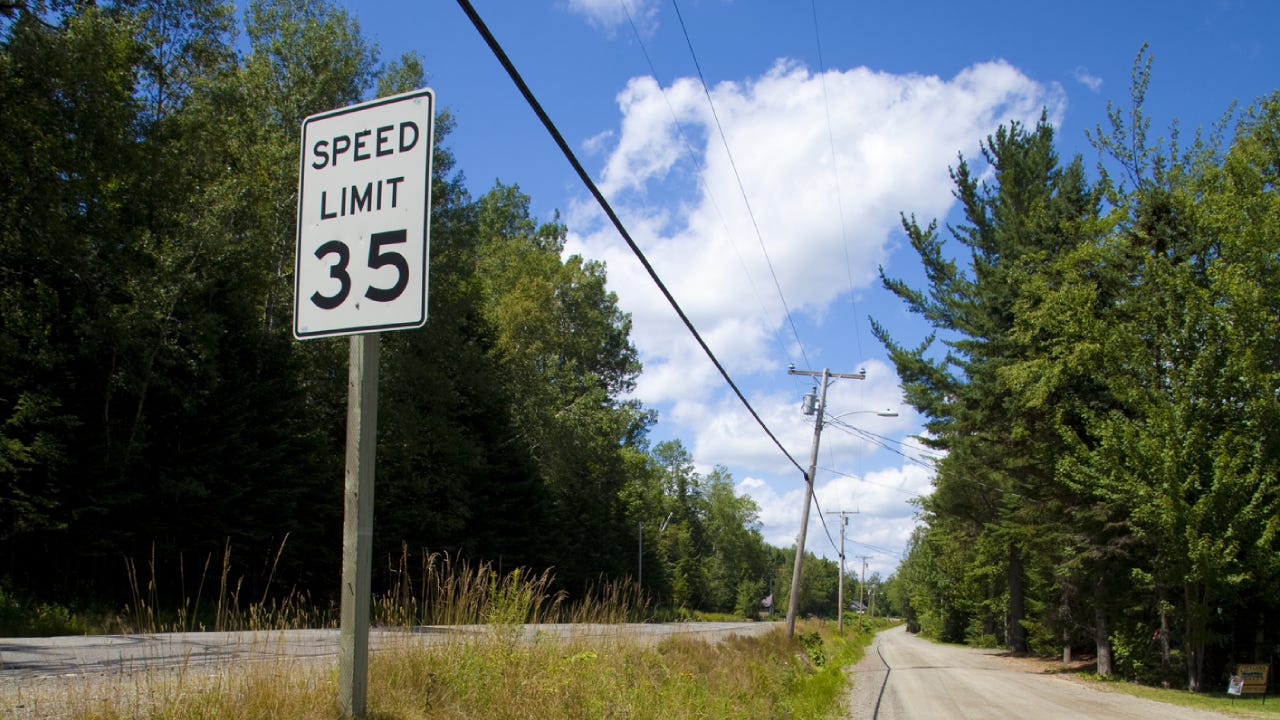How a speeding ticket impacts your insurance in Maine

Speeding tickets can raise the cost of auto insurance no matter where you live. In Maine, drivers with a clean driving record pay an average of $1,554 per year for full coverage and $410 per year for minimum coverage. After a ticket, Maine drivers pay an average of $1,842 per year for full coverage and $481 per year for minimum insurance. Even if you have a recent speeding ticket, you may be able to save on coverage by shopping around and comparing quotes.
How much is a speeding ticket in Maine?
Speeding ticket costs in Maine depend on how far over the speed limit you get clocked. The state also has an “imprudent speed” ticket that costs $134 and may be given if you’re driving too fast for current conditions, such as in the rain or on icy roads.
Speeding infractions in Maine are associated with the following fines:
- 1 to 9 mph over the limit: $114
- 10 to 14 mph over the limit: $129
- 15 to 19 mph over the limit: $170
- 20 to 24 mph over the limit: $230
- 25 to 29 mph over the limit: $278
- Speeding up while being passed: $154
However, speeding tickets in Maine can exceed $278 in certain circumstances. These include:
- Driving in a construction zone: $203 to $531 (depending on speed)
- Driving in a school zone: $203 to $531 (depending on speed)
- Driving in an emergency zone: $325
Note that, under Maine ticket laws, driving more than 30 mph over the speed limit is a class E criminal offense, which carries a maximum fine of $1,000 plus a license suspension of up to 30 days. This type of offense could even carry probation or jail time. The punishment will factor in the driver’s previous driving record.
The cheapest car insurance for Maine drivers with a speeding ticket
If you’ve recently received a speeding ticket, you may not have seen your car insurance premium go up — but at your next renewal, you could see an increase of 18 percent or more. To minimize the impact of a speeding ticket on your insurance rates, it may be worth comparing new quotes from a range of companies. The carriers listed below are those that Bankrate identified as the most affordable insurance providers, on average, for Maine drivers with a single speeding ticket.
| Company | Avg. full coverage rate before speeding ticket | Avg. full coverage rate after speeding ticket | % difference after speeding ticket |
|---|---|---|---|
| USAA | $893 | $1,024 | 15% |
| Vermont Mutual | $1,129 | $1,129 | 0% |
| MMG | $1,475 | $1,953 | 32% |
| Electric | $1,976 | $2,085 | 6% |
What to do after a speeding ticket in Maine
A speeding ticket is a costly reminder to check your driving habits. Practicing safe driving strategies, such as giving yourself more time to get to work, can help you avoid subsequent tickets. In the meantime, you may want to take steps to reduce your car insurance rates.
Get quotes from other car insurance companies
After you receive a speeding ticket, take a look at your renewal rate and get quotes for the same coverage from other insurance providers. While pretty much any insurer will charge a higher rate to a driver with a speeding ticket, not all insurance companies assign the same weight to minor violations like this. If you find more affordable quotes from another trusted auto insurer, you may want to switch insurance companies.
Keep in mind that your insurance rates won’t increase immediately after you receive a ticket. Instead, you’ll see a higher rate when you go to renew your policy.
Look for discounts
Drivers with a recent speeding infraction can still take advantage of auto insurance discounts. Many providers offer better prices to people who insure multiple cars, for instance. You may also qualify for a discount if you work in certain industries or your vehicle has certain safety features. These discounts could offset some or all of your speeding ticket increase:
- Bundling discounts: If you have a renters, homeowners or motorcycle insurance policy, look into combining policies from the same provider to potentially earn a discount on each.
- Low-mileage discount: If you don’t drive often, your insurer might offer you a better rate since you’re at a lower risk of getting into an accident.
- Telematics discount: Most major providers offer telematics programs that track your driving habits through an app or company device. You could see a discount for showing safe driving habits – but you’ll need to share your location and other data with your insurer.
- Defensive driving course discount: You might be able to earn a discount by taking a provider-approved defensive driving course or driver improvement program.
Frequently asked questions
Methodology
Bankrate utilizes Quadrant Information Services to analyze October 2024 rates for all ZIP codes and carriers in all 50 states and Washington, D.C. Rates are weighted based on the population density in each geographic region. Quoted rates are based on a single, 40-year-old male and female driver with a clean driving record, good credit and the following full coverage limits:
- $100,000 bodily injury liability per person
- $300,000 bodily injury liability per accident
- $50,000 property damage liability per accident
- $100,000 uninsured motorist bodily injury per person
- $300,000 uninsured motorist bodily injury per accident
- $500 collision deductible
- $500 comprehensive deductible
To determine minimum coverage limits, Bankrate used minimum coverage that meets each state’s requirements. Our base profile drivers own a 2022 Toyota Camry, commute five days a week and drive 12,000 miles annually.
These are sample rates and should only be used for comparative purposes.
Incidents: Rates were calculated by evaluating our base profile with the following incidents applied: clean record (base) and single speeding ticket.
You may also like

Life insurance for people with high cholesterol

The difference between homeowners insurance and hazard insurance

HO-5 insurance: what it covers and who might need it



